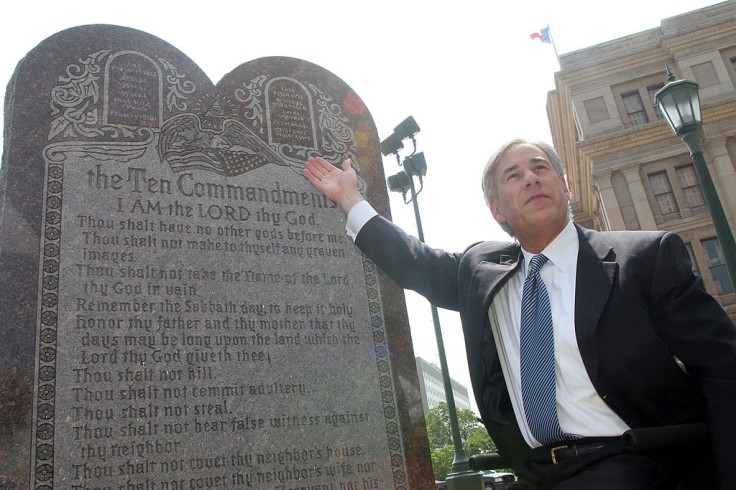
Texas lawmakers have passed a bill allowing unlicensed chaplains to take on school counseling positions, raising concerns about the separation of religion and government in public schools.
In a recent development, Texas lawmakers have approved a controversial bill that grants permission for unlicensed chaplains to serve as school counselors.
The law, passed with an 84-60 vote in the state House, empowers school districts to decide whether they want uncertified chaplains to work alongside licensed counselors and mental health professionals in educational institutions.
This decision has ignited a debate about the boundaries between religion and government, and its potential impact on students' well-being and religious freedom.
New Texas Law Now Allows Chaplains as School Counselor
According to The Hill, the Texas House of Representatives recently granted final approval to a bill that allows unlicensed chaplains to fill counseling positions in public schools, potentially replacing professional counselors.
This legislation represents part of a larger trend in Texas and several other states, where aggressive legislative measures seek to erode the longstanding distinction between religion and government.
As per the Washington Post, advocates argue that a Supreme Court ruling from last summer, Kennedy v. Bremerton, which supported a high school football coach's right to pray with players, has removed the barriers between religious expression and public education.
However, critics of the law express concerns about its implications for the separation of church and state.
They argue that the legislation seeks to promote a specific form of Christianity while disregarding the diverse religious landscape in public schools.
Organizations like Americans United for Separation of Church and State are closely monitoring the situation, highlighting the increased number of bills nationwide aimed at promoting religion in public institutions.
Similar efforts have been observed in states such as Louisiana and Missouri, where over 1,600 bills are being tracked.
Numerous Religious Bills Rejected
In addition to the allowance of unlicensed chaplains as school counselors, Texas lawmakers have proposed other measures with religious implications.
As reported by The Texas Tribune, one such bill aimed to require the display of a version of the Ten Commandments in every classroom, but it failed to secure a House vote before the deadline.
Another bill, which would have permitted districts to mandate prayer and religious readings in schools, also faced obstacles in House committees and is unlikely to resurface during this session.
Opponents argue that these bills are an affront to religious freedom, emphasizing that parents, not school officials or legislatures, should have the right to direct their children's religious education.
They believe that students should not be subjected to a particular religious perspective while attending public schools.
Rachel Laser, President and CEO of Americans United, strongly criticizes the new law, stating that it violates the religious freedom of every student and family in Texas.
Read Also: OB-GYN Shortage Looms: Abortion Laws Discourage Medical Students from Training in Certain States
Controversial Texas Law Raises Questions on Church-State Separation
During the legislative process, Democratic lawmakers proposed amendments to address concerns regarding religious diversity and proselytization.
These included requiring parental consent, ensuring chaplains serve students of all faiths, and preventing the imposition of personal beliefs.
However, the majority, led by Representative Cole Hefner, rejected most of the proposed amendments.
Supporters of the bill contend that unlicensed chaplains can provide valuable support to schools grappling with mental health challenges and other crises.
However, opponents worry that unlicensed individuals without proper educational and professional qualifications may have inappropriate influence over students in public schools.
Despite the ongoing debate and opposition to the new law, Texas lawmakers have passed the bill, which now awaits the signature of Governor Greg Abbott.
As Texas takes this step towards permitting unlicensed chaplains as school counselors, the wider implications for religious freedom and the separation of church and state remain subjects of significant concern and debate.